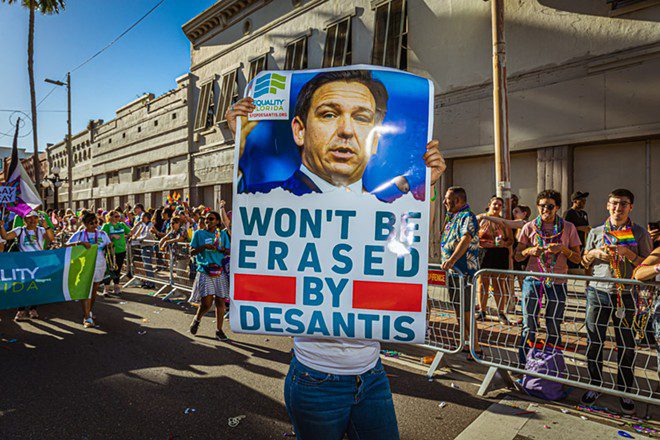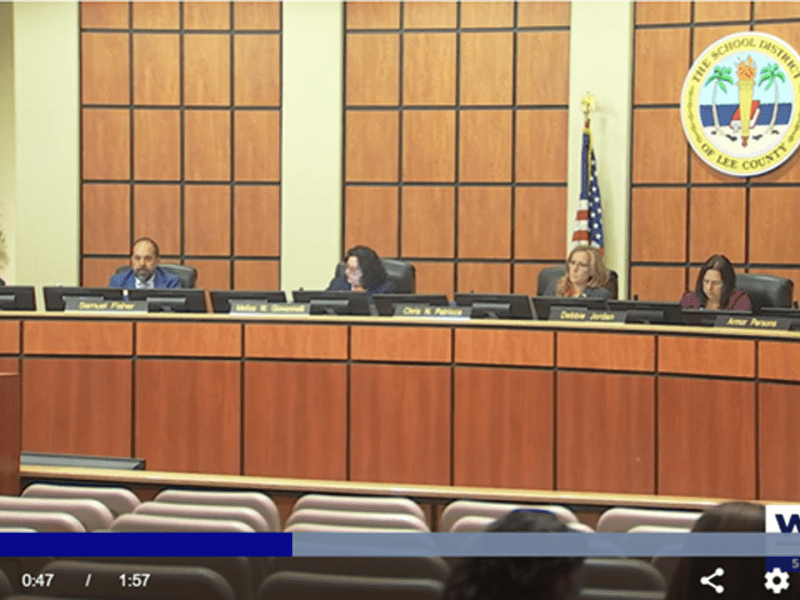Florida’s so-called ‘don’t say gay’ law doing ‘widespread’ harm, motion says
Tampa Bay Creative Loafing | By Dara Kam, News Service of Florida | September 13, 2022
TALLAHASSEE — Plaintiffs challenging a Florida law restricting instruction on gender identity and sexual orientation in schools are asking a judge to reverse an order stalling their ability to gather information in the case, arguing that the law is being used throughout the state to “censor any positive or supportive reference to LGBT people.”
Republican lawmakers titled the measure the Parental Rights in Education bill, while opponents dubbed it the “don’t say gay” bill.
LGBTQ-advocacy organizations Equality Florida and Family Equality, parents, students and a teacher filed the lawsuit in March, shortly after the Republican-dominated Legislature passed the law.
Defendants in the lawsuit, who include members of the State Board of Education and several school boards, have asked that the case be dismissed. U.S. District Judge Allen Winsor in July put on hold plaintiffs’ ability to seek information from the defendants, a process known as discovery, until requests to dismiss the case are resolved.
But in a motion filed Monday, lawyers for the plaintiffs argued that “the facts on the ground have changed materially” in the weeks since Winsor’s ruling and the onset of the school year in August.
“Throughout Florida, schools are taking extraordinary measures to purge any trace of LGBT people from schools, and teachers are afraid to show any support for LGBT students,” the plaintiffs’ lawyers wrote, adding “the intended and foreseeable harms” of the law “are stark, widespread and proliferating.”
The motion, citing news stories, laid out numerous examples of how schools, teachers and students are interpreting the measure (HB 1557). It said:
— Several school districts have removed books with LGBTQ content from library shelves and book fairs, and teachers have been warned that they could lose their teaching licenses if objectionable content is found in their classrooms.
— The Pasco County school district told teachers to “remove ‘safe space stickers’ from all schools … in order to comply with HB 1557.” Safe spaces are “inclusive environments” where LGBT students can feel secure and welcome.
— Orange County school officials “warned educators not to wear rainbow articles of clothing” and to remove safe-space stickers as well as “pictures of same-sex spouses from their desks.”
— A Palm Beach County history teacher changed her lesson about Sally Ride, the country’s first female astronaut, “to omit her identity as a lesbian” because “she didn’t know how to explain that without running afoul of the new laws.”
The law bars instruction on sexual orientation and gender identity in kindergarten through third grade and requires that such instruction in older grades be “age-appropriate … in accordance with state academic standards.”
Opponents argue in part that the vagueness of “age-appropriate” has had a chilling effect on anything involving LGBTQ issues.
The motion said the cited instances “only scratch the surface” of the law’s “harmful impact,” and argued that other circumstances are unknown to the plaintiffs without the discovery process.
“These escalating harms and uncertainties emphasize the need for discovery to commence, so that the case can get back on track and plaintiffs’ claims can be adjudicated on the merits on as expedited a basis as possible,” the plaintiffs’ lawyers wrote.
Even if discovery began immediately, a trial in the case likely wouldn’t take place until mid-April, “exposing plaintiffs to ever-increasing harms through the end of the school year,” the lawyers argued.
The lawsuit alleged that the measure is unconstitutional, discriminatory and “clearly the product of animus towards Florida’s LGBTQ community.”
But in a motion to dismiss the case filed in June, lawyers for Attorney General Ashley Moody’s office argued that the legislation “expressly allows age- and developmentally appropriate education” on sexual orientation and gender identity.
“Consistent with that modest limitation, the law prohibits classroom instruction on sexual orientation and gender identity for the youngest children, neutrally allowing all parents, no matter their views, to introduce those sensitive topics to their children as they see fit,” the state’s lawyers wrote.






